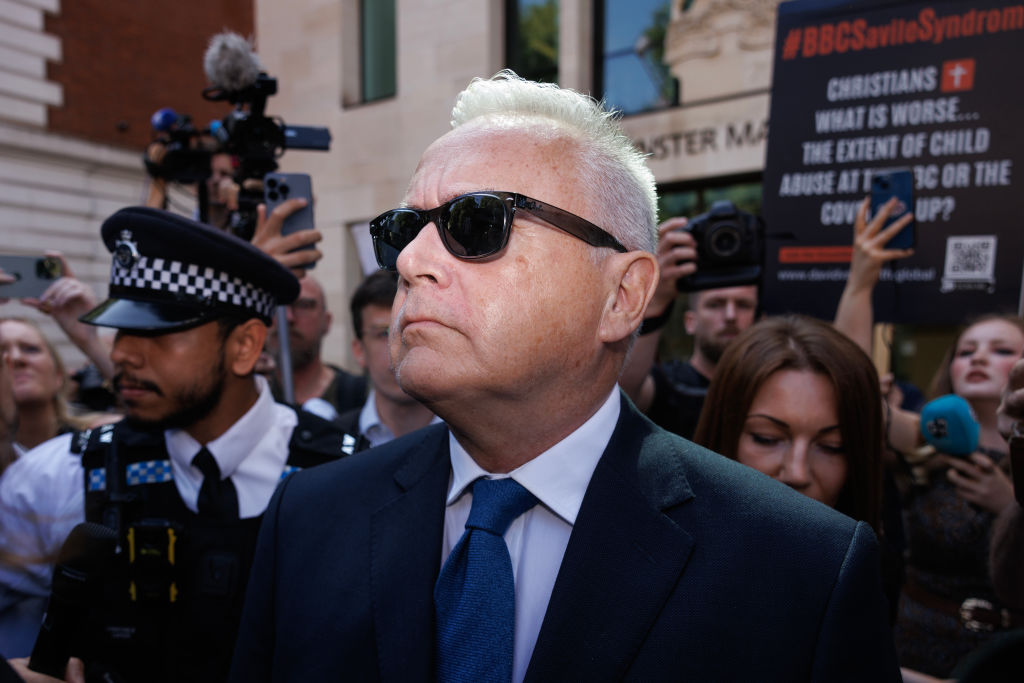Did anyone really expect Huw Edwards to return the £200,000 he ‘earned’ – or, more correctly, was paid – between his arrest in November 2023 and when he finally resigned from the BBC the following April?
The BBC’s chairman, Samir Shah, appeared to think so when he faced the Commons Select Committee on Culture, Media and Sport on Tuesday.
‘We’ve obviously asked, and we’ve said it many times, but he seems unwilling. There was a moment that we thought he might just do the right thing for a change, then he decided not to.’
If it was Mr Shah himself doing the asking, he was no doubt impeccably polite. Director-general Tim Davie has previously hinted that the BBC would go further and use legal means to get its hands on the money, but either that hasn’t actually materialised or it hasn’t worked. Licence-fee payers are stuffed, in other words. At least we can cancel our Netflix subscriptions if we find it distasteful subsidising Harry and Meghan’s lifestyle. Not so our BBC licence fee, which we are compelled to pay for as long as we own a television, even if some of the money has gone to a man now convicted of possessing indecent images of children, as well as to the son of a Hamas official (and therefore quite possibly into the pockets of a terrorist organisation).
Some may well argue that the BBC didn’t have much choice but to continue paying Edwards’ salary after he was arrested. Everyone is, after all, innocent until proven guilty. Had the corporation sacked him at the time of his arrest, it would have stood accused of dumping an employee who at the time was off sick with a mental health condition. But then again, he had already been exposed for paying a 17-year-old £35,000 for sexual photos. Even if not strictly illegal, it was behaviour that was hardly consistent with his job as the trusted voice charged with announcing solemn news such as the death of the Queen. Mental illness or not, the BBC should not have continued to employ him after the earlier scandal.
Moreover, what was the BBC doing paying him a salary of between £435,000 and £440,000 in the first place? The only valid argument for a TV licence fee is that the BBC is engaged in public service broadcasting – i.e. doing what commercial broadcasters are not prepared to do. The only justification for paying a newscaster £435,000 a year is the fear that they might be poached by a commercial station to do the same job there. But if your presenters are being poached by commercial operators then, by definition, what you are doing is not public service broadcasting.
Huw Edwards is going to remain a source of embarrassment for the BBC for many years to come. He may be gone from live news programmes, but still, it will be his mug staring at us every time the announcement of the death of Queen Elizabeth II is reshown. He is a reminder not just of the BBC’s unfortunate relationship with paedophilia over many decades, but also of its disregard for licence-fee payers’ money. The BBC still seems unable to grasp that the licence fee is an anachronism that will have to go if the corporation wants any kind of freedom.
Book tickets to our next Coffee House Shots Live, where our panel will unpack the Spring Statement








Comments